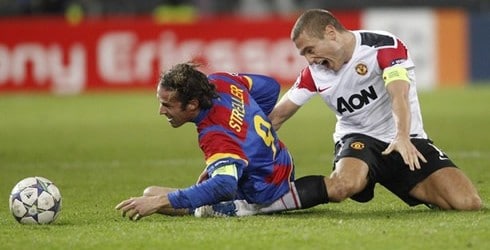
Most ACL injuries occur after a non-contact twisting injury. ACL tears can also occur after being struck on the side of your leg. Most athletes will pivot or twist, run and feel a pop in their knee. Then they are left wondering “Did I Tear My ACL”?
I’ve heard the story far too many times… A high school or college athlete was running, they went to change direction on the field and felt a pop or snap within their knee. Most athletes do not continue playing after the injury occurred . Many athletes will tell me that they tried to get up and walk but their knee felt unstable so they sat back down. Within a few hours the knee will start to swell and walking on that leg will become difficult. An examination by an Athletic Trainer on the field, or the team physician immediately after the injury can usually determine if the ACL is torn. After the knee swells and the pain worsens it is more difficult to examine these knees to see if there is an ACL tear.
Did I Tear My ACL?
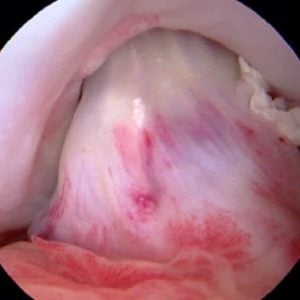 In athletes under 25 years of age, a swollen knee following a turning, twisting or pivoting injury means that you have a 75% chance that your just tore your ACL. At this point you should be assisted off the field. Many, but not all athletes will require crutches to help them walk. If your knee feel loose or unstable if might be because of an ACL tear. Do not attempt a return to activities until you have been examined by a Sports Doctor.
In athletes under 25 years of age, a swollen knee following a turning, twisting or pivoting injury means that you have a 75% chance that your just tore your ACL. At this point you should be assisted off the field. Many, but not all athletes will require crutches to help them walk. If your knee feel loose or unstable if might be because of an ACL tear. Do not attempt a return to activities until you have been examined by a Sports Doctor.
Your first visit to a Sports Medicine doc will include X-rays to be sure that there are no fractures, a less common cause of swelling and pain. A good examination will be able to determine if the ACL is torn. Perhaps even more important, the examination should determine if the ACL was the only ligament torn. Multi-ligament injuries do exist and in those circumstances we might need to consider repairing all the injured ligaments. ACL tears can occur with MCL injuries. ACL injuries can also occur with injuries to the outer or lateral side ligaments too. Sometimes you will only suffer a partial ACL tear … the MRI and exam both need to support that diagnosis.
An MRI will be used to confirm the injury, but more important, to rule out any injury to the cartilage or meniscus.
An interesting and worthy note. We know that patients who tear their ACL are at risk for developing osteoarthritis. Early studies show that an anti-inflammatory injection soon after the injury might diminish that risk.
ACL Injury/Surgery Related Questions:
- What are the best first steps after an ACL tear?
- Xray, examination and MRI: An xray is important to make sure you did not fracture anything at the time of the injury. On occasion the bone where the ACL attaches will actually pull off or break. An MRI is useful to confirm that the ACL is injured, however, it is more important to look for any associated injuries such as a meniscus tear.
- Possible steroid injection- early research is showing it might decrease the risk of future arthritis.
- Should I start physical therapy?
- Physical therapy prior after injuring your ACL and prior to ACL surgery is very important. Recent research shows that the results of surgery might be better if PT if performed before ACL surgery. Physical therapy after ACL surgery is extremely important to minimize the risk of reinjury to the ACL.
- Do I need surgery for my ACL tear?
- Many people who tear their ACL will need surgery to stabilize the knee.
- There are some people who may not need surgery on their ACL. Many older folks who are weekend warriors may do very well without surgery. In this post we asked 5 expert ACL surgeons who they consider is a good candidate for ACL surgery.
- How do you choose a surgeon for your ACL?
- Volume and experience matter… we discuss this here.
- Which graft should I use for my ACL surgery?
- Graft choices for ACL surgery is a complex topic. In this post we have 5 ACL experts discuss their graft choice for ACL surgery. In this video we discuss the options available for those considering ACL surgery here.
If you have a swollen and painful knee after a twisting injury you should strongly consider an examination by a Sports Medicine physician to evaluate your knee for an ACL tear.


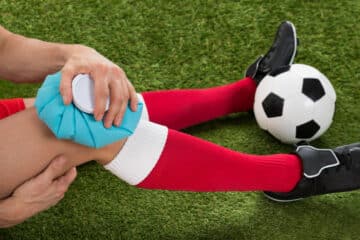

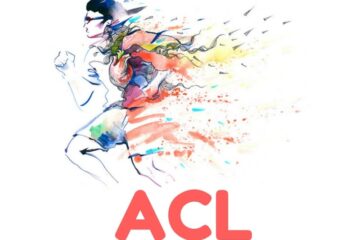
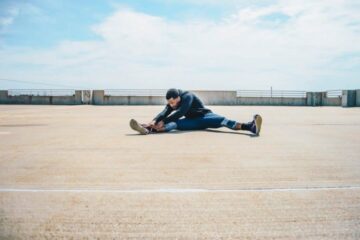








Hello,
Very interesting read. I am recovering from a full ACL tear alongside a Meniscus tear, I had ACL reconstruction surgery with meniscus repair March 2016 and let me tell you, I do NOT want to experience this type of pain again. I can fully understand what you are talking and referring to about the ”pop” or ”snap” sensation in knee. I felt the loudest snap as if someone had snapped an elastic band in my ear and I remember falling like a sack of potatoes on the floor in agony and feeling extremely sick.
My injury occurred whilst playing tennis but had weakened my ACL previous years of kickboxing. Recovery is slow but you will get there (eventually….one hopes) and physical activity can be tough. I sometimes feel that I am 95 and not 35 years old when I get up and walk about due to stiffness and pain BUT it is improving.
Thank you Howard J Luks for the theory, was very interesting to read and was reader friendly.
Hello,
I had ACL surgery about a couple of months ago and I just got cleared to play again. But I haven’t got my ACL brace to play yet. I have a soccer game this Saturday and I was wondering if there was any way I could use the big post op brace to play just for this one time?
Returning to play after an ACL reconstruction is a complex problem. Unless you completed a very in depth test of your agility, landing, and jumping skills which included a test for your core and pelvic stability then you may not actually be cleared to return. A brace, sadly offers no protection against a new tear. Your post-op brace will not protect you.
Hi there,
I would be interested in hearing your thoughts on combined ACL & Anterolateral Ligament reconstruction, because I just can’t find a lot of information out there about it. I tore my ACL the first time three years ago and had it reconstructed with hamstring autograft. Everything seemed to go well, and I started trying to work myself back into some running…only to have my knee lock up at one of my final post-op visits, which my doctor decided surgery was required for what ended up being a small medial meniscus tear. I rehabbed from that but noticed that my knee felt “loose” again and started to have occasional buckling episodes, swelling, etc. After rehabbing for nearly 8 months, I figured that was the new “normal” for my knee so I stepped back out onto the soccer field for the first time since I tore my ACL. I made it through two games before I planted on that leg to turn and I felt it shift and down I went- feeling the same pain and sensation that I did when I tore my ACL the first time -minus the pop. I decided to get a second, and then third opinion. In May had my third surgery in just over three years for now a torn Lateral Meniscus only to have the third doctor say that I need my ACL reconstructed again along with my ALL and that this is why I keep having these injuries and this fourth surgery will finally restore the rotational stability. This time around he wants to use patellar tendon autograft from the same knee for the ACL and a cadaver tendon for the ALL. My doctor could tell me about the surgery, but no one seems to be able to tell me much about the recovery and rehab other than “this is a new thing” and I hesitate going through this again without knowing more before going in. I’m only 27. I played collegiate soccer, I used to do triathlons, and I would love to be able to at least run again.
We do not know enough about the ALL to know if we should or should not be reconstructing them. the vast majority of surgeons are not reconstructing the ALL at this time.
Good luck to you!